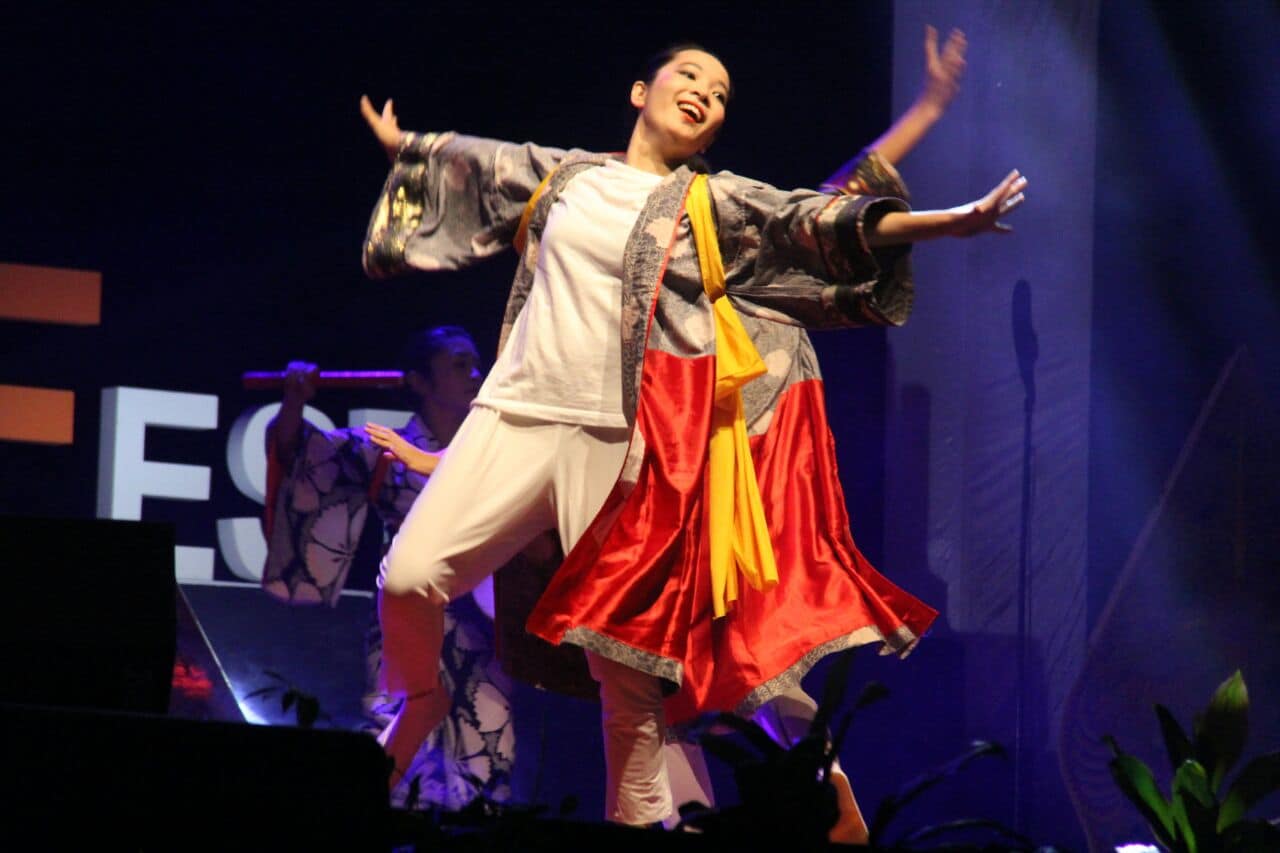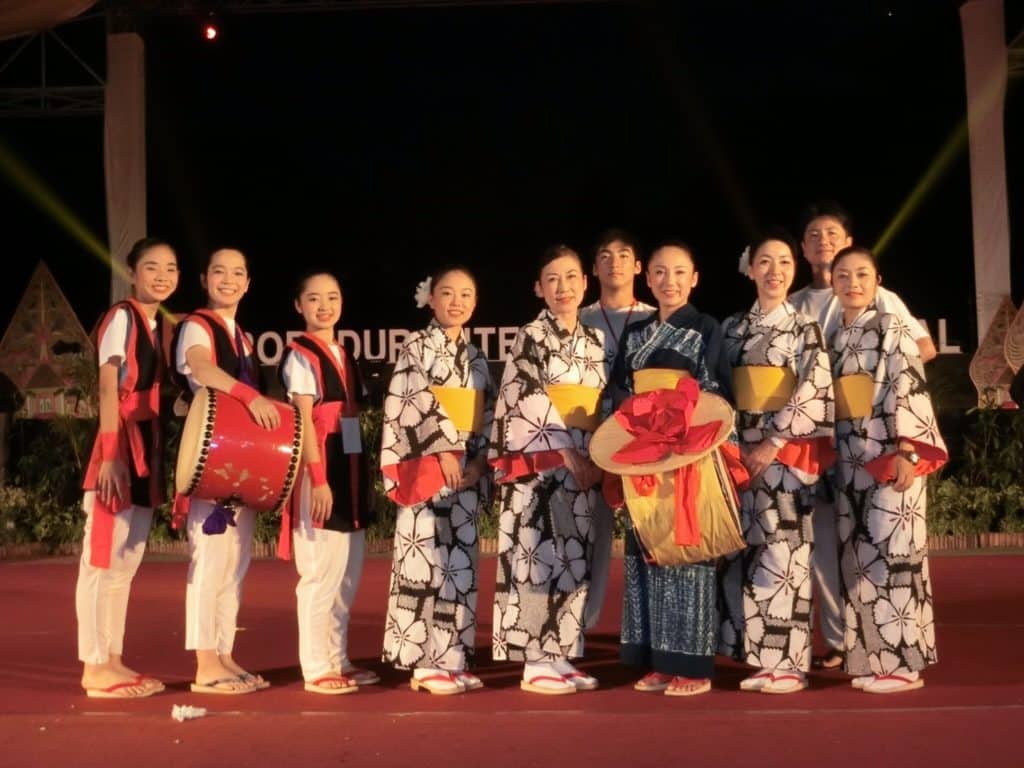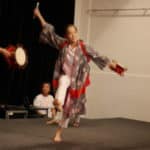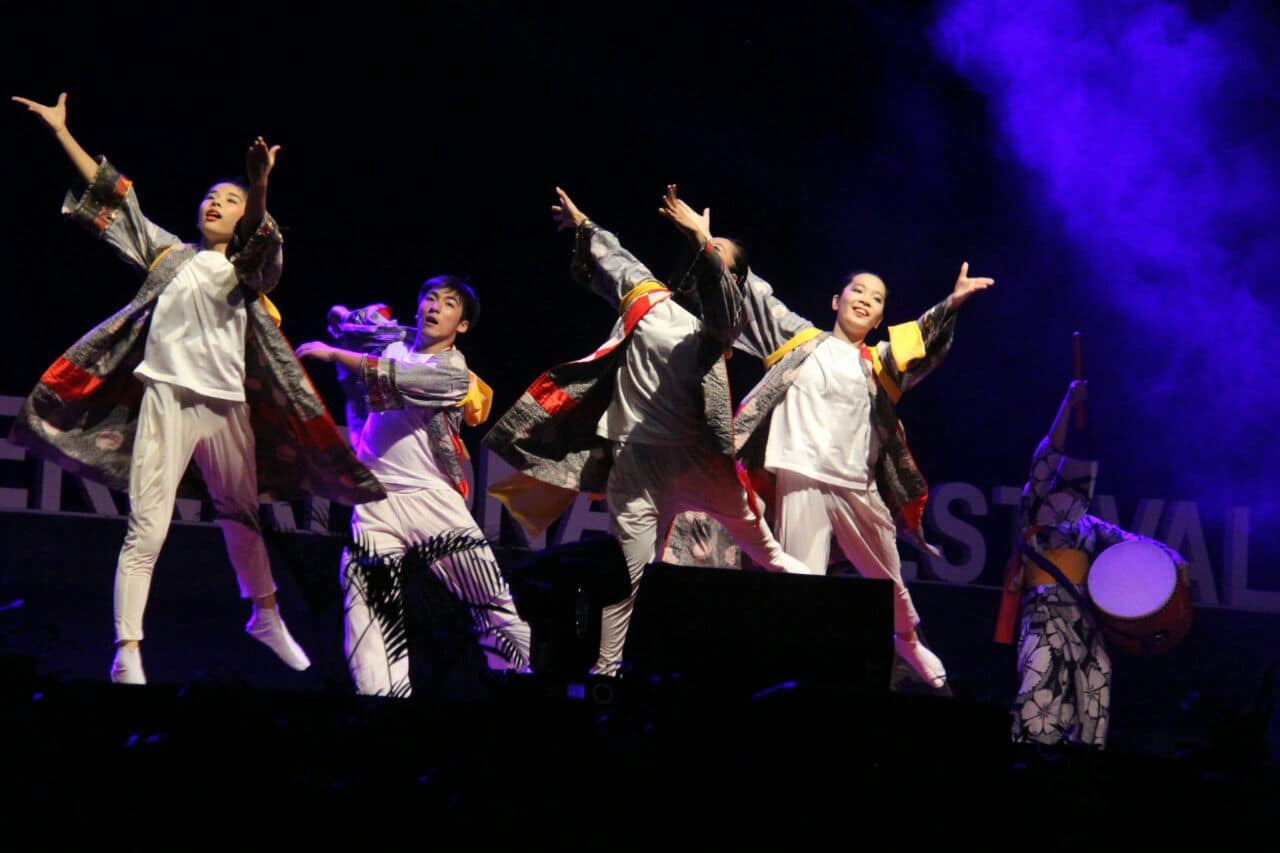
Moe, a student from ISS International School has always been interested in culture. “Having lived in both Japan and Singapore, I had the privilege of experiencing the cultures of each of these counties. As a result, I developed an appreciation for the different cultures that I was introduced to. I also realised the importance of being able to share and promote cultural exchange, and I knew that I can fulfill this through dance.” Moe who is a keen dancer, has performed all over the world; in her native Japan, in Hawaii, at the Borobudur Temple in Java, Indonesia and at Singapore’s very own Chingay Festival! From her various experiences. she saw how dance can act as a strong connector to “introduce culture to others, even when there is a language barrier!” Chingay, in particular, offered an opportunity for fellow non-Japanese students to learn about Japanese dance form and how this compares and contrasts with dance from their own culture.

With this as her motivation, Moe single-handedly planned, designed and organised for the 15-member strong Kirakira Hikaru Arts dance group from Japan to come to Singapore for a week in August. The Group, together with Moe, performed at one of the local schools and a polytechnic, as a way of introducing Japanese culture through dance to the youth of Singapore. Dance workshops which developed an appreciation of traditional Japanese dance movements, were also planned for the participants from Japan, as well as their Singapore host, to ensure that the essence of cultural exchange through dance was strengthened. The ISS school community of students, teachers, parents, alumni and the Board also had the privilege of having Moe and the group perform for them at School.
To work on this initiative of having the dance group perform to the various Singapore audiences; Moe started and planned this project almost 12 months ago, whilst juggling her heavy school work load. She was inspired to do so when she performed with this group in Hawaii. She saw the appreciation, reaction and effect that their Japanese dance performance had on the Hawaiian audience. An understanding of Japanese culture emerged through their performance. She too learnt about the Hawaiian culture when the hosts performed for them. She therefore set her mind to replicating this for the Singapore audience!
She hoped that her fellow Japanese dance members would also learn
about the Singapore culture through this cultural exchange, and they
most certainly did when they were here.

Moe further shares that her time at ISS fuels her love for culture. “Studying at ISS has created many opportunities for me to interact with people from many other cultures, as well as to share the Japanese culture with my school mates, through dance.”
She started a Japanese Taiko (drum) dance ECA (extra curricular activity) at school and now has fellow ISS students performing with her in this ECA. Teachers too are excited to see her perform whenever the ECA takes place.
This has been a personally fulfilling experience for Moe. As Moe sums it up aptly, ”this gave me a chance to promote cultural exchange and be inspired through the beauty of dance!”
What Moe has spearheaded is just one of the many such Service as Action / Creativity Activity Service actions that are intiated by our students from the time they start school at Kindergarten, to the time they graduate at Grade 12.
These activities are central to the learning at ISS. We belief that education extends beyond the intellectual to include not only socially responsible attitudes, but also thoughtful and appropriate action. An ISS education inspires all learners to become engaged, socially responsible individuals with an understanding of their responsibilities within their community. Such activities give our students opportunities to grow both personally and socially, developing skills such as cooperation, problem solving, conflict resolution, creative and critical thinking, as well as developing their own identities. It is also through service that ISS students will be able to make the connections between their academic studies and real life, making them truly global stewards.

